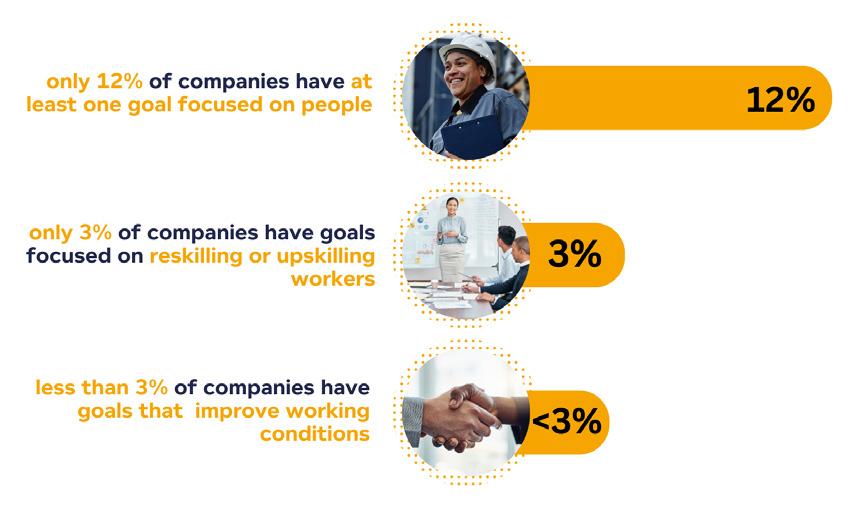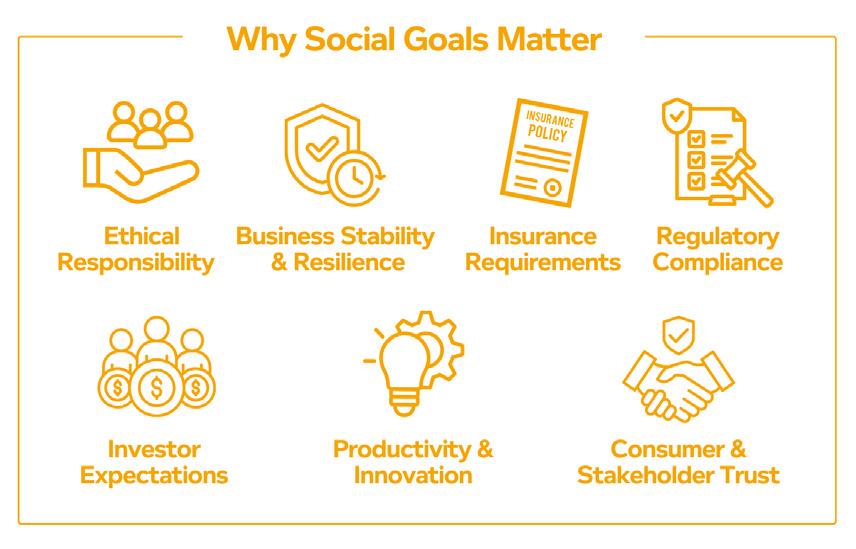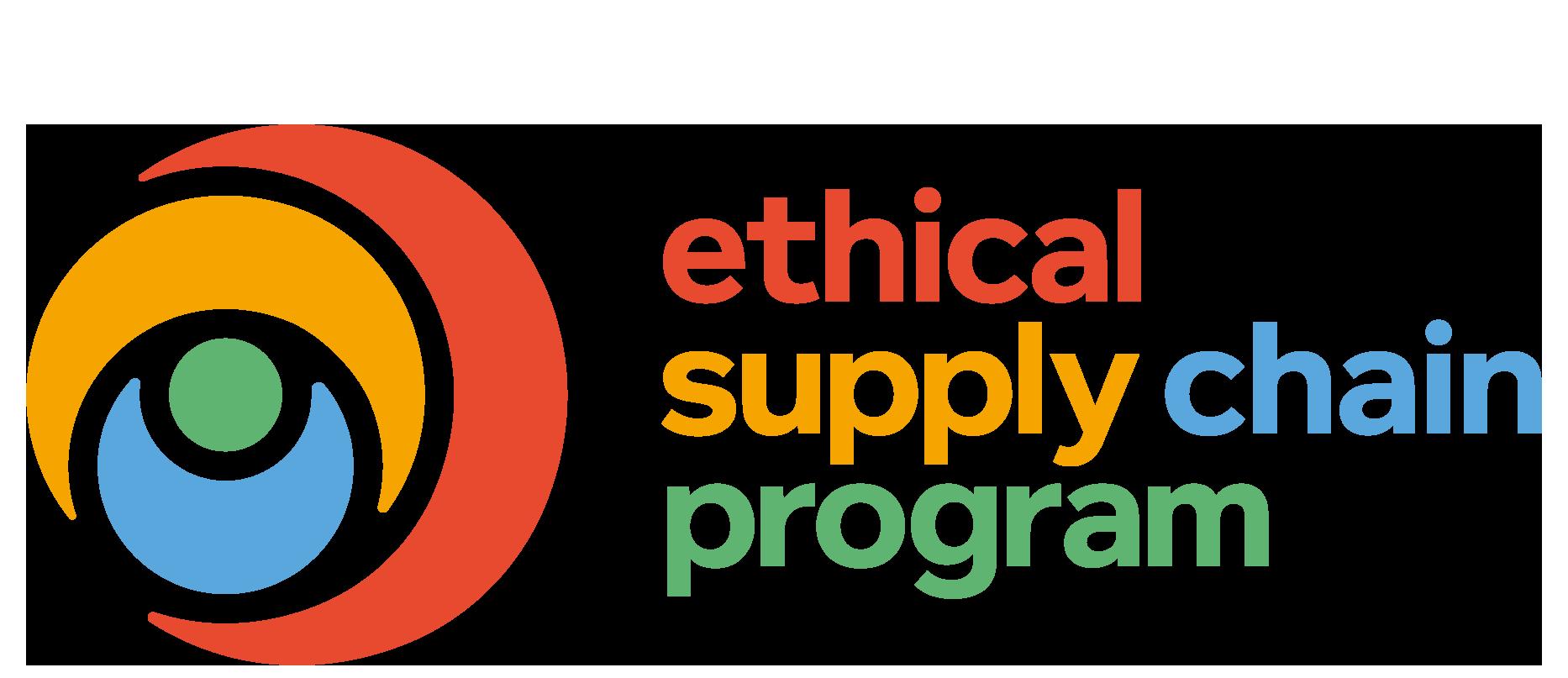
5 minute read
Special Feature - Ethical Supply Chain Program
Risk or reward: how peoplefocused supply chain goals can impact business
Aoife McCarthy, Marketing and Communications manager at the Ethical Supply Chain Program, tells Toy World readers why their business would benefit from a people-focused supply chain goal and why it is important to put worker well-being at the forefront.
In boardrooms and sustainability reports, companies proudly commit to net zero, carbon reduction and climate resilience. These goals matter, but they often overshadow an equally vital part of the sustainability equation: people. Workers are the backbone of global supply chains, yet most corporate sustainability strategies fail to put them first. This gap is not just an ethical blind spot; it’s a business risk. Without safe, skilled and empowered workers, supply chains cannot be resilient or meet rising expectations from regulators, investors, insurers and consumers.
Recent research looking at Fortune 500 companies highlights just how large this gap is. Only 12% of companies have a supply chain goal focused on people. Just 3% are investing in reskilling or upskilling their workforce, and fewer than 3% have measurable goals to improve working conditions (WRI, 2025). The statistics confirm what we at the Ethical Supply Chain Program (ESCP) know firsthand: the environmental pillar of sustainability gains momentum while social lags behind. This is a huge risk for companies – a risk that can cost millions to address reactively.
Social goals are fundamental to the long-term health and success of global supply chains. To ensure this, businesses should consider:
Their ethical responsibility: At its core, sustainability is about balancing people, planet and profit. Every worker deserves dignity, fair treatment and safe conditions. Ignoring this undermines the very foundation of ESG commitments, as well as UN Sustainable Development Goals No.8: Decent Work.
Business stability and resilience: Unethical labour practices can lead to strikes, high turnover, supply chain disruptions and reputational crises. Companies that invest in worker well-being build supply chains that are more reliable and adaptable in the face of global shocks.
Regulatory compliance: Governments are increasingly mandating human rights due diligence and transparency in supply chains. From the EU’s Corporate Sustainability Due Diligence Directive (CSDDD) to modern slavery legislation in markets like the UK, Australia and the US, companies that fail to integrate social goals risk non-compliance, legal penalties and loss of market access.
Investor expectations: Many investors are integrating social indicators into their ESG assessments, looking for evidence that companies are managing social risks and creating long-term value through their workforce. Companies that can demonstrate measurable progress on labour rights, worker safety and upskilling are more attractive to responsible investors and capital markets.
Increasing requirement of insurers: Product insurance is a crucial safeguard for toy manufacturers and retailers, protecting against potential claims and liabilities that may arise from the sale of their products. Some insurers are now requiring evidence of ESG performance and production process oversight before they will provide cover. Proactively providing this information enables companies to reduce the cost of insurance and secure cover.
Productivity and innovation: When workers are skilled, healthy and engaged, supply chains run more efficiently. Upskilling and training also prepare the workforce to adopt new technologies and respond to market changes. Neglecting this leaves companies exposed to skills shortages and slower innovation.
Consumer and stakeholder trust: Consumers are increasingly conscious and want proof that products are made responsibly. People-centred supply chains enhance brand reputation, build consumer loyalty and strengthen trust across all stakeholders.
Research also shows that most companies take a “push or pull” approach to suppliers, either demanding compliance or offering incentives. What’s lacking is a partnership approach, working alongside suppliers to build the skills, systems and capacity needed to make sustainable change. That’s where ESCP comes in. For over 20 years, we’ve worked to advance worker well-being across supply chains. Our approach goes beyond audits to deliver lasting change through:
Certification that builds trust: Clear standards on pay, safety and worker rights give buyers confidence and suppliers market recognition.
Capacity building: Training, workshops and management support help suppliers improve health and safety, workplace policies and gender equality. These programmes embed change so that progress lasts well beyond audit.
Worker helpline that amplifies voices: Our confidential Worker Helpline empowers workers to raise concerns directly and safely and gives companies real-time visibility into workplace issues that might otherwise remain hidden.
Wellbeing programmes with business benefits: Our range of programmes, including employer-funded childcare, produce measurable business benefits. In 2024, 87% of participating factories said the initiative helped recruitment efforts and 81% said it reduced their worker turnover rate.
Sourcing support that reduces risk: Through our Connect Platform and expert support, we help buyers make responsible sourcing decisions. By connecting companies with certified ethical suppliers, as well as highlighting those involved in worker well-being programmes such as employer-funded childcare services, we make it easier for businesses to integrate social goals into their ESG strategies.
Strategic collaborations: Partnerships with organisations to expand reach and strengthen worker protections. Most recently with Worldwide Responsible Accredited Production (WRAP), giving workers a safe channel to raise concerns and delivering capability building training and mutual recognition to reduce audit fatigue while embedding ethical practices.
Sustainability isn’t only about carbon footprints and climate targets. It’s also about dignity, safety and opportunity for the millions of people who make products possible. Through beyond audit solutions such as certification, capacity building, worker voice and responsible sourcing, we can close the gap and put people back at the centre of supply chain sustainability.
Find out more at www.ethicalsupplychain.org.













